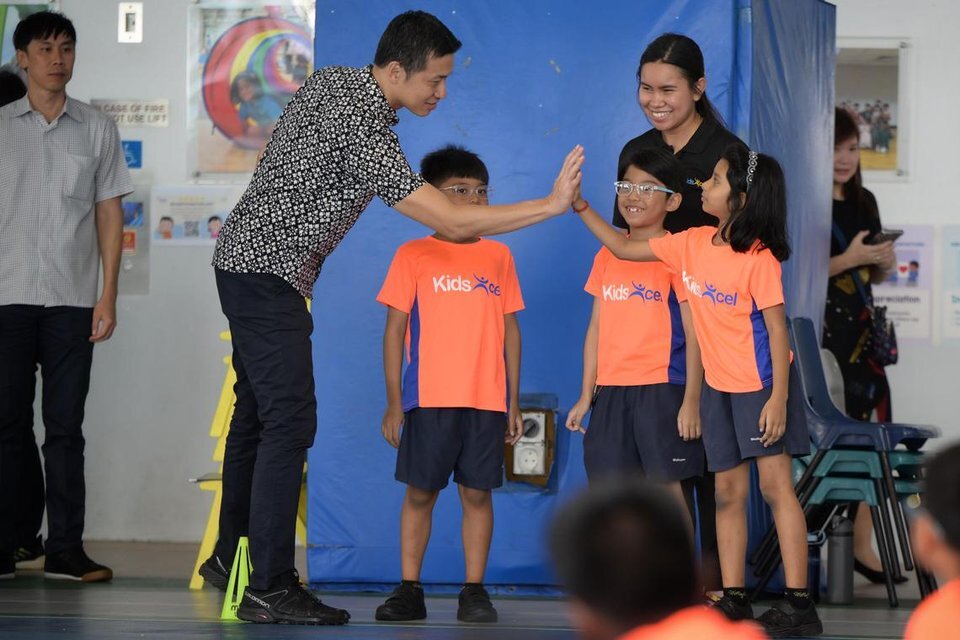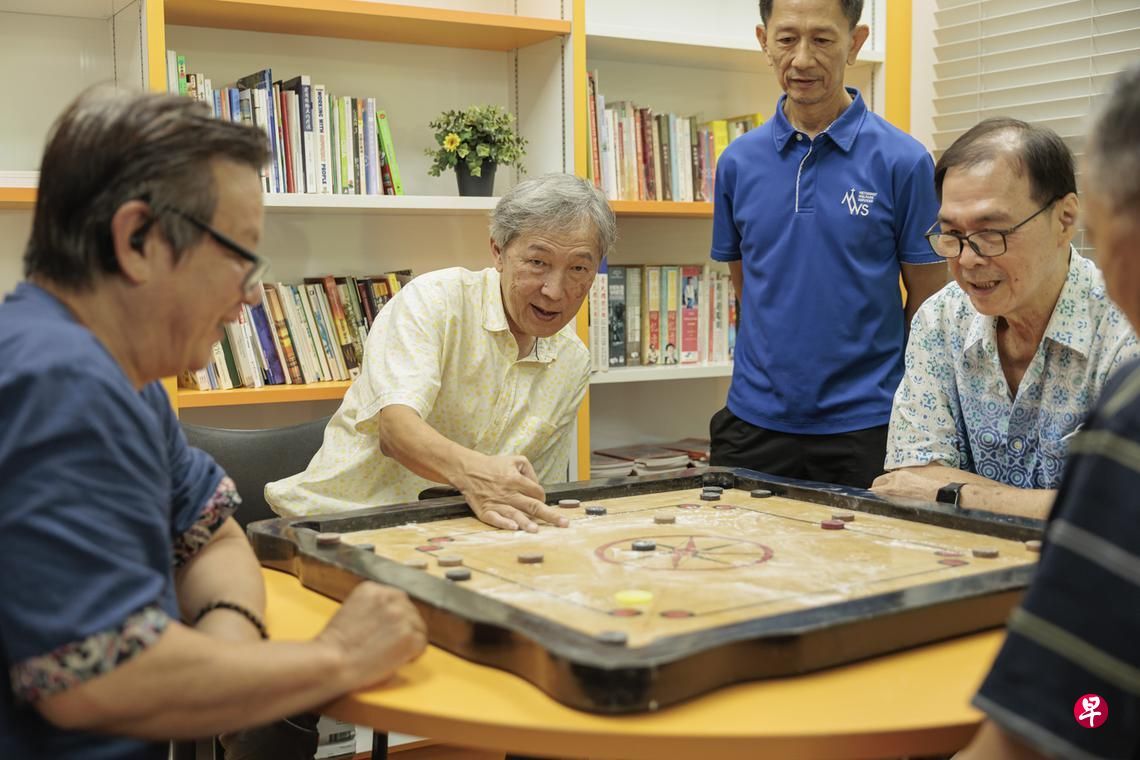Donor-advised funds can make a meaningful impact in Asia


Such funds give donors more say in the philanthropic process, and can lead to donors being tipped off about underfunded causes. These funds also make it possible for non-millionaires to do their bit.
What do Jack Dorsey, Larry Page, Elon Musk, Jack Ma and Mark Zuckerberg have in common in terms of their charitable giving?
All of them have used donor-advised funds (DAFs) in short. DAFs are popular in the United States, with over US$140 billion sitting in these accounts. In Asia, DAFs are relatively new with only Singapore, China, South Korea and Japan setting them up.
What exactly is it? In a DAF, the donor transfers money or other assets to another entity called the sponsoring organisation. While the sponsor legally owns the assets, the donor is given a huge say in determining when the fund is disbursed and causes to support, hence the name “donor-advised funds”. Typically, the sponsoring organisation will provide advisory services to the donor on how to effectively utilise the funds.
At this juncture, a reader may ask what is the difference between a DAF and an organisation like the Community Chest in Singapore, which raises funds for multiple charities?
The major distinction is the role of the donor in the DAF, as compared to the donor making an outright contribution to charity. In a DAF, the donor is an active participant, working in collaboration with the sponsoring organisation, in disbursing funds.
Let us say, we have a philanthropist who wants to make a S$1 million contribution to educational causes. While S$1 million is certainly a lot of money, it is insufficient to set up a private foundation due to the administrative costs involved. A donor who uses a DAF may direct the funds to support worthwhile causes in education, while being properly advised.
In many cases, the donor is a wealthy person who may not be familiar with what is happening on the ground. Therefore, the sponsoring organisation adds value by providing advisory services.
In this example, the sponsoring organisation may, after doing due diligence, recommend that the donor disburse funds to underfunded causes like pre-school, technical and special-needs education.
DAFs can also function as an emergency fund for a “rainy day”. For instance, there could be an emergency societal need like children living under Covid-19 lockdown conditions, who are now deprived of sponsored school lunches. Money from DAFs could then be channelled to fund food vouchers for their families during home-based learning.
In fact, this was the cause championed by The Recess@Home programme spearheaded by the Community Foundation of Singapore, a DAF.
BENEFITS OF DONOR-ADVISED FUNDS
A DAF is attractive to donors because of the many benefits it offers.
First, the DAF gives the donor a greater role in the philanthropic process. This sense of satisfaction that the donors get may encourage them to give more to charities in future and set up a private foundation. In fact, in setting up the first DAF in Singapore in 2008, then Minister for Community Development, Youth and Sports, Vivian Balakrishnan, described it as a “starter kit for foundations”.
Second, the donor is supported by DAF sponsors, who are intimately aware of the needs of the community. Therefore, the funds can support the causes that are desperately in need.
Third, the DAF, if properly used, may achieve maximum impact by making contributions to underfunded areas. Fourth, the donation to a DAF need not be a cash gift, but may take the form of company shares or other non-cash assets. Finally, some countries provide requisite tax breaks to donations to DAFs.
The biggest advantage of the DAF is democratisation of philanthropy from the ultra-high net worth families to individuals who have a modest sum to donate. A heart-warming example is the story of the late Kim Gun-Ja, who set up a fund with the Beautiful Foundation, a South Korean DAF. Ms Kim, a sex slave under Japanese rule, donated all her assets save for funeral costs to set up the Grandmother Kim Gun-Ja Fund to support college tuition for orphans. In Singapore, a DAF may be set up with a minimum sum of S$200,000.
Recently, DAFs have come under trenchant criticism in the United States; some quarters have called it a form of “zombie” philanthropy. The main critique is that donors enjoy tax breaks while disbursing too little to charities. Some have called for a law that mandates the DAF to pay out a certain percentage annually. While this criticism of DAFs is legitimate in the United States, it may not apply to DAFs in Asia, where tax breaks are not the primary motivations behind philanthropic giving.
DAFS IN SINGAPORE
There is anecdotal evidence, at least in Singapore, that the level of disbursements to charities is quite high. For example, the two DAFs in Singapore, the Community Foundation of Singapore and SymAsia Foundation Limited, show a high payout rate to charities. The Community Foundation of Singapore has collected S$192 million and disbursed S$114 million in grants. SymAsia Foundation Limited stated in its 2020 annual report that it collected S$170 million and disbursed S$120 million. In fact, donors are conscious that they ought to disburse more to charities.
RISING PAYOUTS DURING THE PANDEMIC
There is currently a campaign in the United States called #HalfMyDAF, where donors are committing to granting half of the money sitting in their DAFs to charities. During this pandemic, there are reports in the United States that payouts from DAFs to charities have indeed been higher, even as critics push for the payouts to be even more accelerated. In contrast to the cautious and structured giving inherent in DAFs, there is McKenzie Scott, ex-wife of Jeff Bezos, who upended the philanthropic world by donating US$6 billion in 2020.
With proper governance, DAFs yield a net-positive over the Asian philanthropic space, compared to an informal channel of giving that relies on one’s family and business contacts. A DAF provides a structured and cost-efficient vehicle that democratises philanthropy and identifies societal needs that are underfunded. It is hoped that there would be more properly governed Asian DAFs set up, with high payout rates to charities to tackle difficult domestic and pressing transnational problems of our time, like climate change.
To find out about donor-advised funds, read more about it here.
This article is written by Professor Tang Hang Wu, CFS Board Committee Member and a professor of Law at the Yong Pung How School of Law, Singapore Management University.
This translated article was originally published by The Business Times.
Credit: The Business Times © Singapore Press Holdings Limited. Permission required for reproduction.
Such funds give donors more say in the philanthropic process, and can lead to donors being tipped off about underfunded causes. These funds also make it possible for non-millionaires to do their bit.
What do Jack Dorsey, Larry Page, Elon Musk, Jack Ma and Mark Zuckerberg have in common in terms of their charitable giving?
All of them have used donor-advised funds (DAFs) in short. DAFs are popular in the United States, with over US$140 billion sitting in these accounts. In Asia, DAFs are relatively new with only Singapore, China, South Korea and Japan setting them up.
What exactly is it? In a DAF, the donor transfers money or other assets to another entity called the sponsoring organisation. While the sponsor legally owns the assets, the donor is given a huge say in determining when the fund is disbursed and causes to support, hence the name “donor-advised funds”. Typically, the sponsoring organisation will provide advisory services to the donor on how to effectively utilise the funds.
At this juncture, a reader may ask what is the difference between a DAF and an organisation like the Community Chest in Singapore, which raises funds for multiple charities?
The major distinction is the role of the donor in the DAF, as compared to the donor making an outright contribution to charity. In a DAF, the donor is an active participant, working in collaboration with the sponsoring organisation, in disbursing funds.
Let us say, we have a philanthropist who wants to make a S$1 million contribution to educational causes. While S$1 million is certainly a lot of money, it is insufficient to set up a private foundation due to the administrative costs involved. A donor who uses a DAF may direct the funds to support worthwhile causes in education, while being properly advised.
In many cases, the donor is a wealthy person who may not be familiar with what is happening on the ground. Therefore, the sponsoring organisation adds value by providing advisory services.
In this example, the sponsoring organisation may, after doing due diligence, recommend that the donor disburse funds to underfunded causes like pre-school, technical and special-needs education.
DAFs can also function as an emergency fund for a “rainy day”. For instance, there could be an emergency societal need like children living under Covid-19 lockdown conditions, who are now deprived of sponsored school lunches. Money from DAFs could then be channelled to fund food vouchers for their families during home-based learning.
In fact, this was the cause championed by The Recess@Home programme spearheaded by the Community Foundation of Singapore, a DAF.
BENEFITS OF DONOR-ADVISED FUNDS
A DAF is attractive to donors because of the many benefits it offers.
First, the DAF gives the donor a greater role in the philanthropic process. This sense of satisfaction that the donors get may encourage them to give more to charities in future and set up a private foundation. In fact, in setting up the first DAF in Singapore in 2008, then Minister for Community Development, Youth and Sports, Vivian Balakrishnan, described it as a “starter kit for foundations”.
Second, the donor is supported by DAF sponsors, who are intimately aware of the needs of the community. Therefore, the funds can support the causes that are desperately in need.
Third, the DAF, if properly used, may achieve maximum impact by making contributions to underfunded areas. Fourth, the donation to a DAF need not be a cash gift, but may take the form of company shares or other non-cash assets. Finally, some countries provide requisite tax breaks to donations to DAFs.
The biggest advantage of the DAF is democratisation of philanthropy from the ultra-high net worth families to individuals who have a modest sum to donate. A heart-warming example is the story of the late Kim Gun-Ja, who set up a fund with the Beautiful Foundation, a South Korean DAF. Ms Kim, a sex slave under Japanese rule, donated all her assets save for funeral costs to set up the Grandmother Kim Gun-Ja Fund to support college tuition for orphans. In Singapore, a DAF may be set up with a minimum sum of S$200,000.
Recently, DAFs have come under trenchant criticism in the United States; some quarters have called it a form of “zombie” philanthropy. The main critique is that donors enjoy tax breaks while disbursing too little to charities. Some have called for a law that mandates the DAF to pay out a certain percentage annually. While this criticism of DAFs is legitimate in the United States, it may not apply to DAFs in Asia, where tax breaks are not the primary motivations behind philanthropic giving.
DAFS IN SINGAPORE
There is anecdotal evidence, at least in Singapore, that the level of disbursements to charities is quite high. For example, the two DAFs in Singapore, the Community Foundation of Singapore and SymAsia Foundation Limited, show a high payout rate to charities. The Community Foundation of Singapore has collected S$192 million and disbursed S$114 million in grants. SymAsia Foundation Limited stated in its 2020 annual report that it collected S$170 million and disbursed S$120 million. In fact, donors are conscious that they ought to disburse more to charities.
RISING PAYOUTS DURING THE PANDEMIC
There is currently a campaign in the United States called #HalfMyDAF, where donors are committing to granting half of the money sitting in their DAFs to charities. During this pandemic, there are reports in the United States that payouts from DAFs to charities have indeed been higher, even as critics push for the payouts to be even more accelerated. In contrast to the cautious and structured giving inherent in DAFs, there is McKenzie Scott, ex-wife of Jeff Bezos, who upended the philanthropic world by donating US$6 billion in 2020.
With proper governance, DAFs yield a net-positive over the Asian philanthropic space, compared to an informal channel of giving that relies on one’s family and business contacts. A DAF provides a structured and cost-efficient vehicle that democratises philanthropy and identifies societal needs that are underfunded. It is hoped that there would be more properly governed Asian DAFs set up, with high payout rates to charities to tackle difficult domestic and pressing transnational problems of our time, like climate change.
To find out about donor-advised funds, read more about it here.
This article is written by Professor Tang Hang Wu, CFS Board Committee Member and a professor of Law at the Yong Pung How School of Law, Singapore Management University.
This translated article was originally published by The Business Times.
Credit: The Business Times © Singapore Press Holdings Limited. Permission required for reproduction.
- Related Topics For You: CHARITY STORIES, DONOR STORIES, DONOR-ADVISED FUND, NEWS
.jpg)


